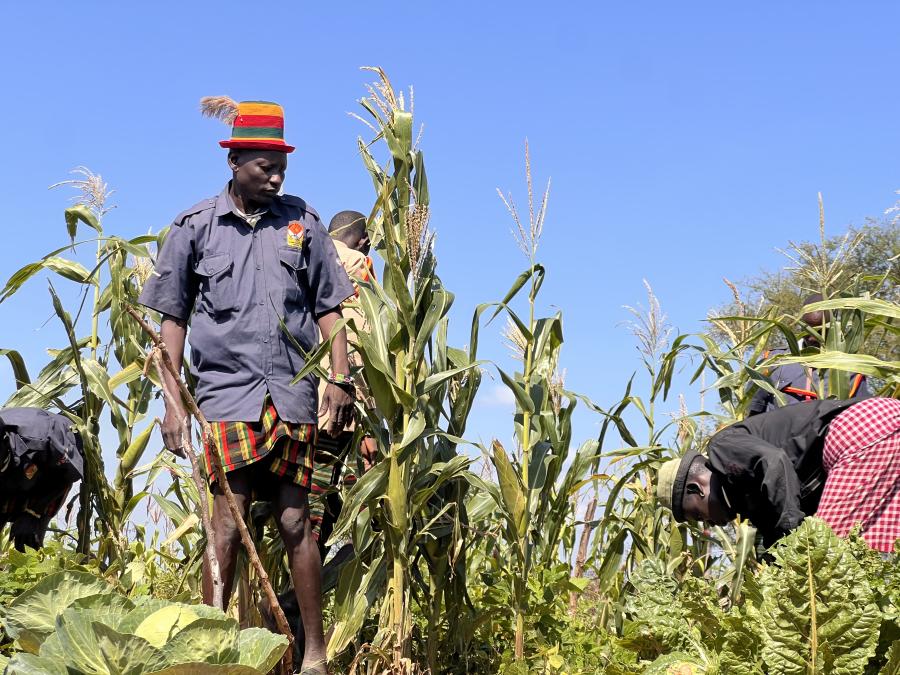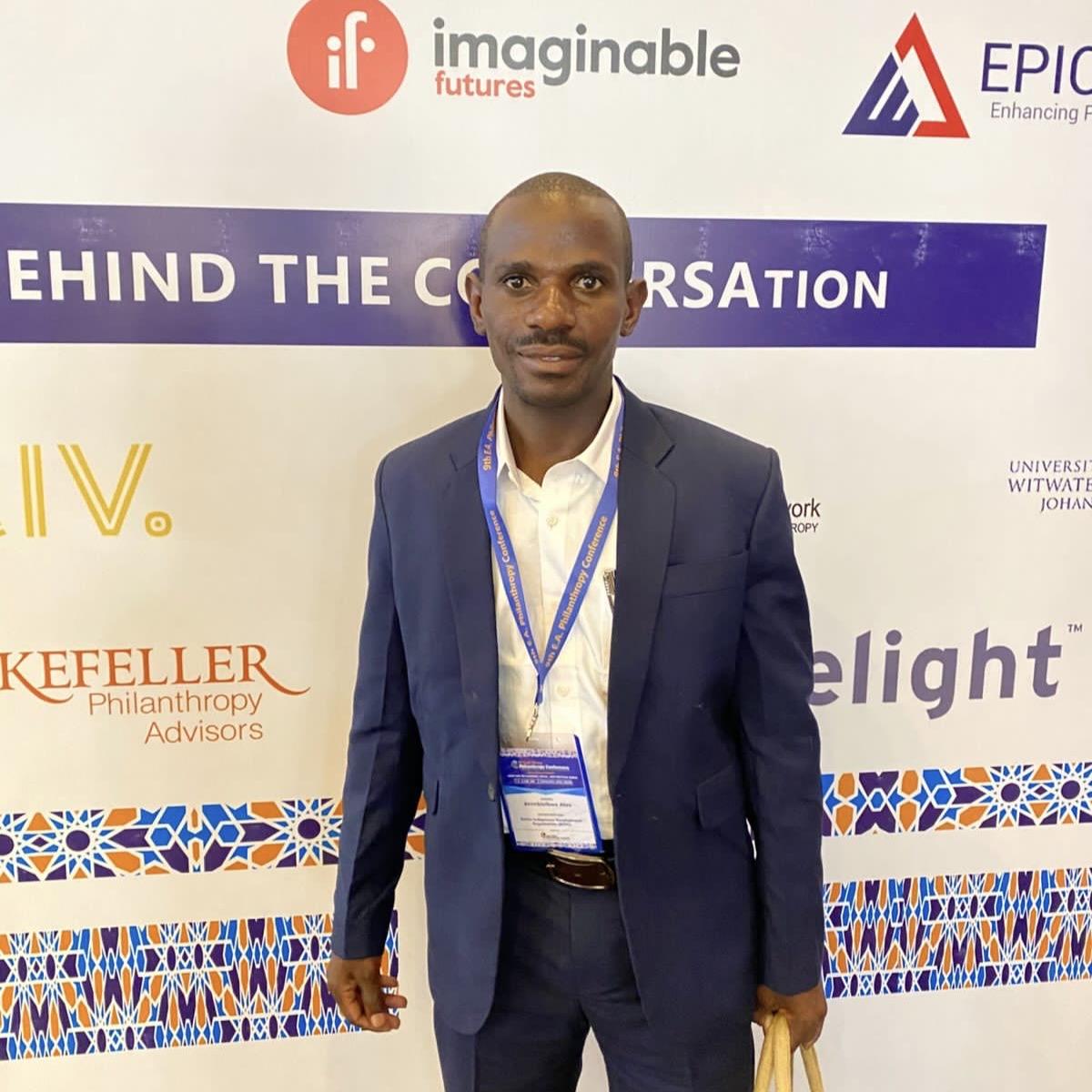
By Lucas Kasosi (Maasai, CS Intern)
“When you are no longer allowed to talk to your ancestors, to pray in your forest, to feed yourself, then you are no longer fully alive.”
—Alex Ahimbisibwe, Batwa Indigenous leader, educator, and founder of BIDO
In Batwa cosmology, land is not property; it is memory, spirit, and survival. When that land was lost, it was not only territory that vanished, but identity. In 1991, the Ugandan government evicted the Batwa from the Bwindi and Mgahinga forests to establish conservation areas. No compensation was given. Sacred caves were sealed. Ceremonies ceased. Hunger, homelessness, and humiliation followed. For decades, the Batwa were left without land, without recognition, and without a voice in the systems that claimed to manage them.
But today, the Batwa are not silent. Through the Batwa Indigenous Development Organisation (BIDO), a community-led initiative founded by Alex Ahimbisibwe in 2015, they are reclaiming what was taken. They are not only demanding land—they are restoring language, governance, education, and ecological sovereignty. And most of all, they are speaking for themselves. “Some people used our pain for fundraising,” Ahimbisibwe says. “But we are there. We are educated. We know what we can do. We can make a voice, to fight for our rights.”
“Why Not Us?”: Founding BIDO from Within
Ahimbisibwe was born into a community that was already in crisis. After the forest eviction, Batwa families were scattered across villages where they were landless, often treated as squatters and excluded from services. Many children were not allowed in school. Those who were often left early, shamed by classmates and unsupported by teachers.
“Most Batwa children drop out because schools shame them. They come home embarrassed to call their parents ‘father’ or ‘mother’ because our culture is mocked,” Ahimbisibwe explains.
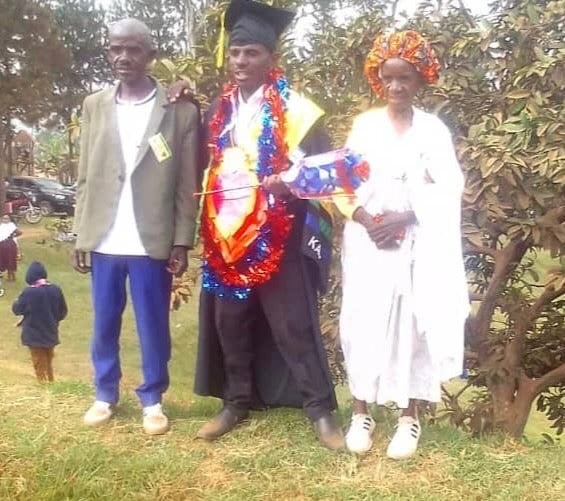
Alex Ahimbisibwe, founder of BIDO, during his graduation—a milestone in his journey of advocacy and Indigenous leadership.
Ahimbisibwe persevered. He was among the few Batwa youth to complete secondary school. But what he saw in the classroom was not just a lack of inclusion, it was a strategy of erasure. “If I had not been educated, I would not even know that we were being used. I would not know why we lost our language. Now I know,” he reflects.
BIDO began as a response to that awakening. In 2015, Ahimbisibwe and a group of Batwa Elders and youth founded the organization, not as a donor project, but as an act of community ownership. “We said, ‘Why not us?’ “We can’t let others continue speaking for us while we stay silent,” Ahimbisibwe says.
From its first programs to its current campaigns, BIDO has been defined by its commitment to Batwa-led development, accountability to the community, and the long view of justice.
“The Caves Are Our Mecca”: Reclaiming the Sacred
For the Batwa, the forest is not simply where they lived, it is where they worshipped. The Kitatemba and Murugezi caves are more than natural formations. They are spiritual sanctuaries, rain shrines, places of prophecy and prayer. Their closure cut off a line to the divine.
“Those caves, they are our Mecca. They are our heaven,” says Ahimbisibwe. “Living without access to them is like living without access to God.”
Since the eviction, Batwa ceremonies have been broken. Rituals to name children, bless marriages, or ask for rain have largely stopped. Many Elders believe this has harmed not only spirits, but bodies, too.
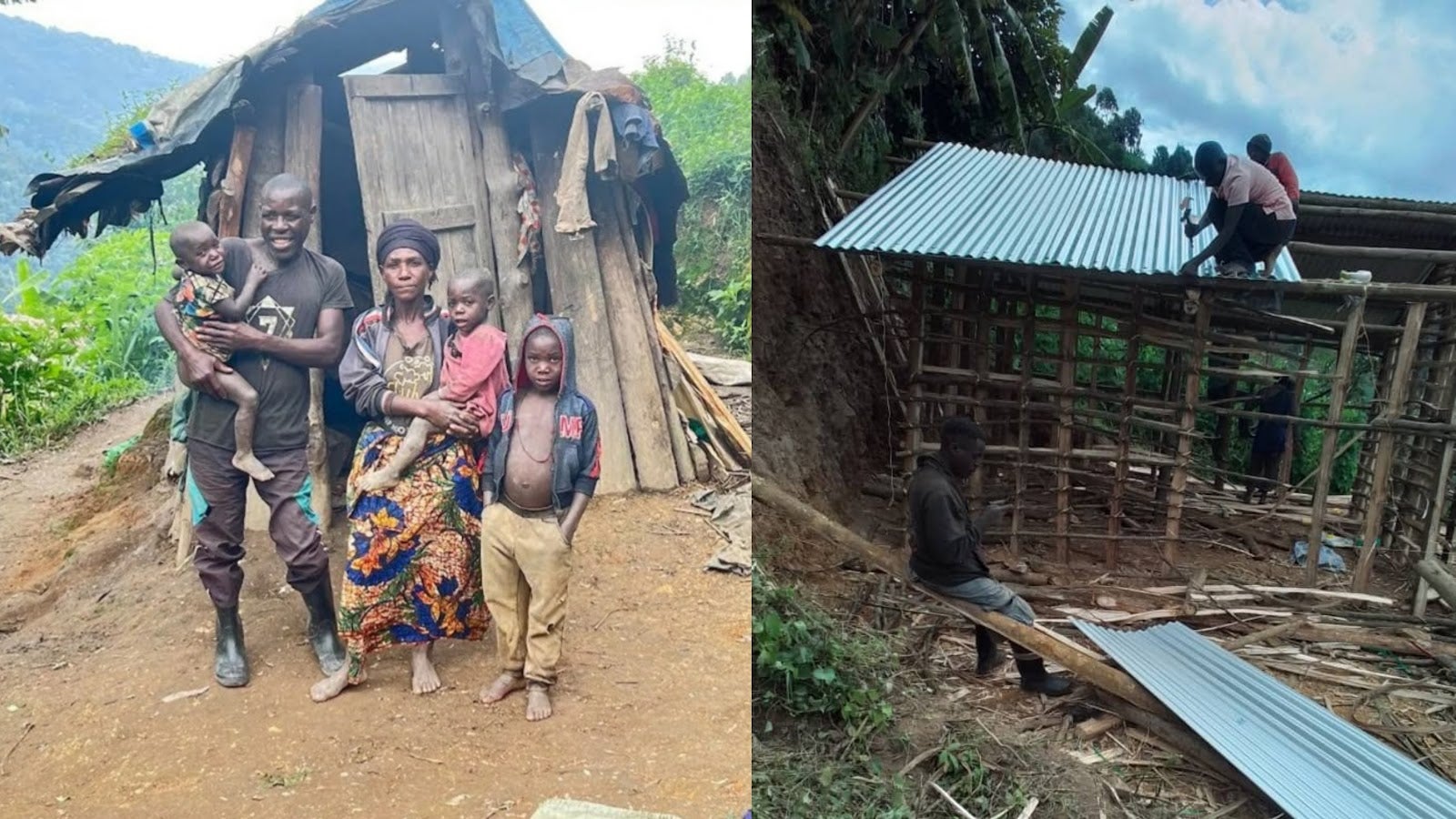
BIDO constructing a new home (right) for the family pictured on the left.
“People didn’t just die from hunger. They died because the spirits were angry. They were not being fed,” Ahimbisibwe says.
BIDO is now leading a campaign for recognition of these caves as protected Batwa cultural heritage, with guaranteed access for spiritual practice. “We are not just fighting to pray,” Ahimbisibwe emphasizes. “We are fighting to reconnect with who we are.”
Seeds of Sovereignty: Food as Political Resistance
The eviction displaced the Batwa onto marginal land with no infrastructure, tools, or farming knowledge. Traditionally hunter-gatherers, they were suddenly expected to cultivate infertile soil. “Food insecurity is not just about hunger,” Ahimbisibwe says. “It’s about power. It’s about the loss of our knowledge, our land, our ability to feed ourselves.”
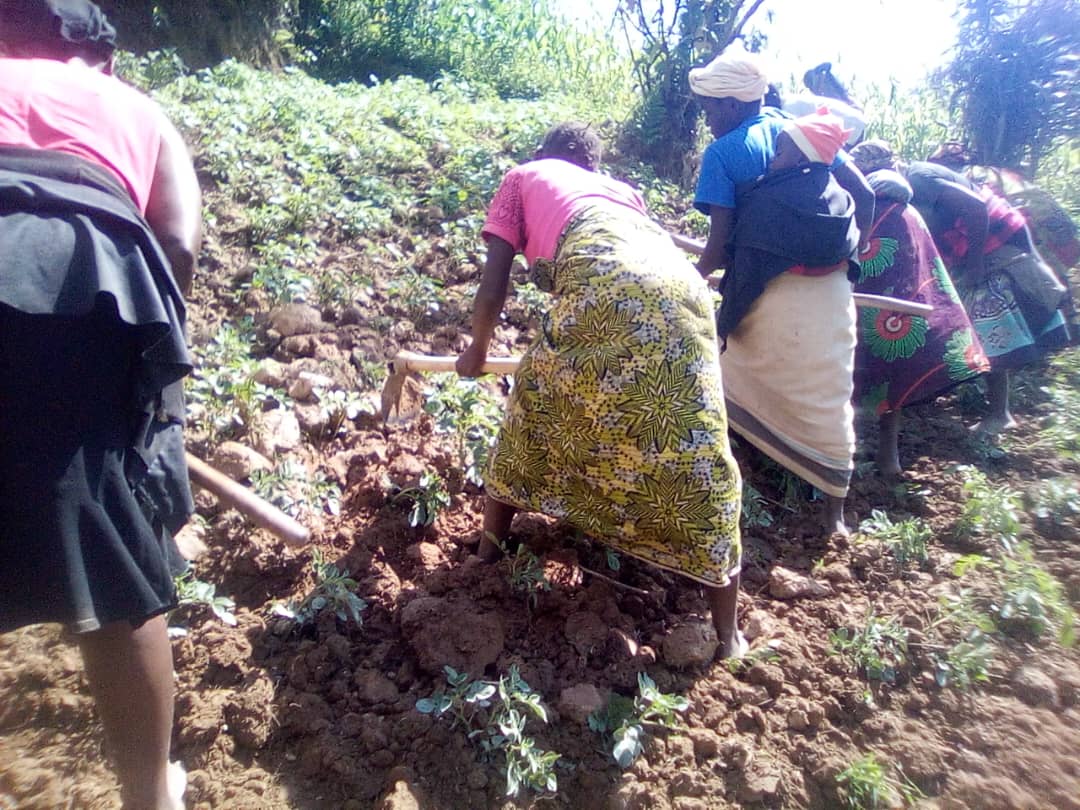
A Batwa commercial garden growing Irish potatoes for both household use and market sale. Community members collectively hire larger plots to increase yields and strengthen local livelihoods
In response, BIDO launched Seeds of Sovereignty, a program that trains Batwa communities in agroecology, integrating ancestral ecological wisdom with practical tools for resilience. Participants learn how to build zaï pits, construct vertical gardens, and make compost using rabbit urine, wood ash, and native herbs.
“It’s not just about farming; it’s about resistance. Let us plant. Let us save seeds. Let us share,” Ahimbisibwe says.
In Kashija, where BIDO began its pilot, communities have transitioned from dependency to self-reliance. Women manage seed banks. Elders teach forest-plant uses. Children are now fed from gardens built by their own hands.
“We were told we had nothing to offer,” Ahimbisibwe says. “But now we’re showing that forest knowledge can feed a family. It can rebuild our pride.”
Reclaiming Learning: A Curriculum That Remembers
Batwa children who attend mainstream schools often return home with shame, not skills. The curriculum ignores Batwa history. Teachers dismiss Batwa language. And there is no space for Traditional Knowledge.
“One parent told us their child came home and said they were embarrassed to call them ‘father,’” Ahimbisibwe shares. “That’s when we knew something was deeply wrong.”
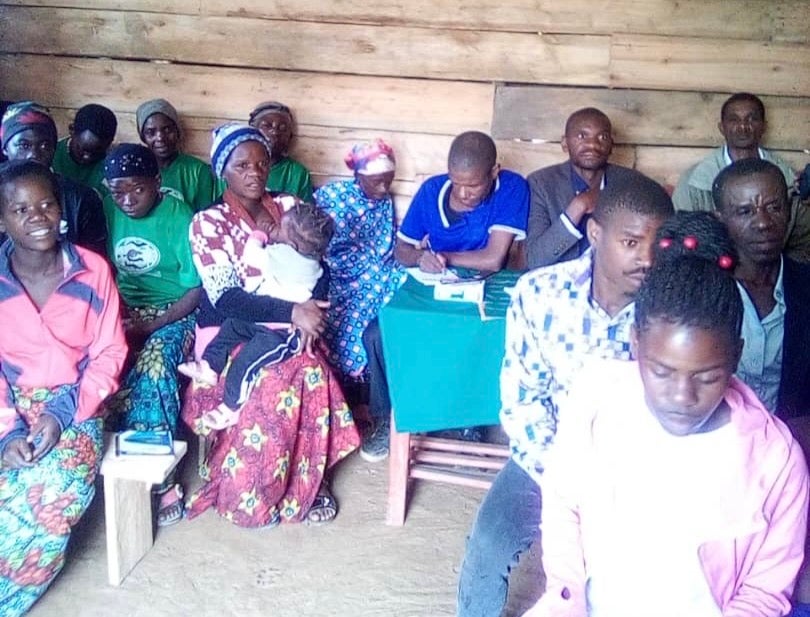
Members of the Kashija Batwa community gather to discuss and organize their next agroecology activities.
In response, BIDO is building the Batwa Skills Development Center, a revolutionary space where vocational training is integrated with cultural education. Students will learn carpentry, tailoring, and honey harvesting, along with oral history, forest survival skills, and Batwa spirituality.
“Western education has demonized our culture. We want to integrate Elders into teaching so that education reflects our traditions. Otherwise, we raise children who don’t know where they come from,” Ahimbisibwe says.
The center also serves as protection for Batwa girls, many of whom are vulnerable to early marriage or exploitation in tourism. “Girls have fallen into problems because they lack skills,” Ahimbisibwe says. “With this center, we give them dignity and survival on their own terms.”
Women Are the Voice of the Movement
Throughout the Batwa’s displacement, it has been women who held the community together, gathering food, preserving knowledge, raising children in exile. At BIDO, women lead agroecology training, manage community seed banks, and conduct health education using forest medicine.
“What a man can manage, a woman can also run. They’ve taken on the hardest roles under the harshest conditions. They are our equals. Our teachers. Our protectors,” says Ahimbisibwe.
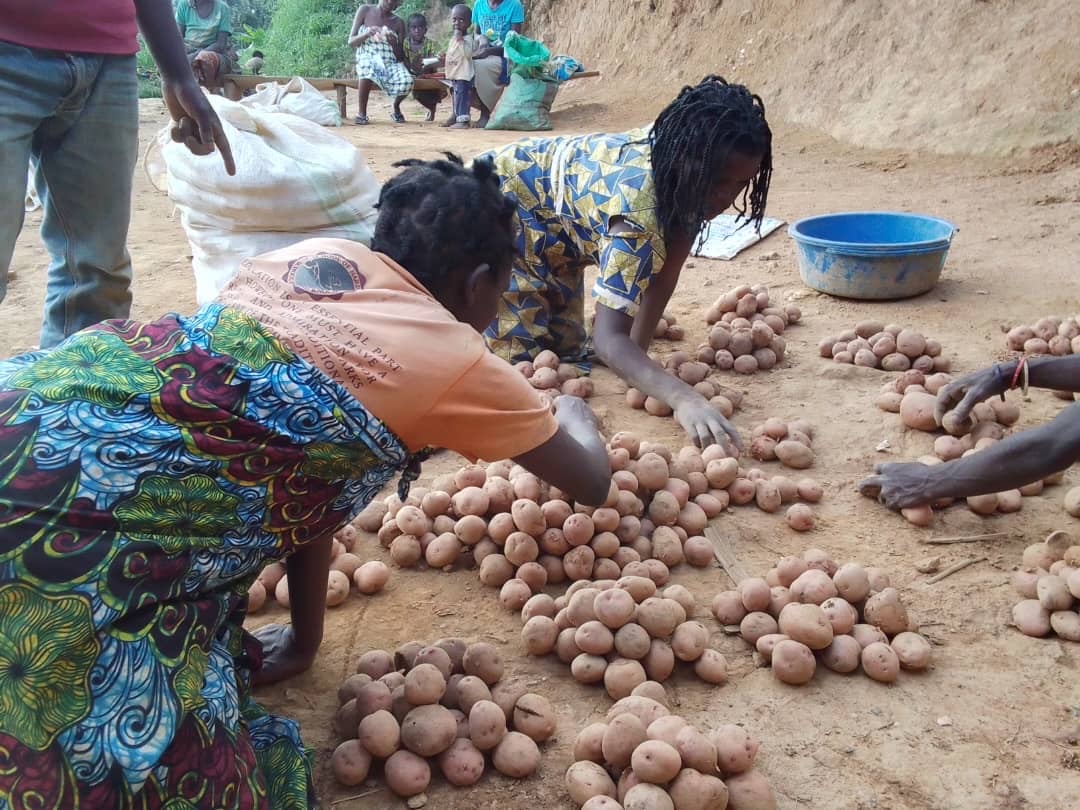
Batwa women share harvested food and set aside portions for future storage.
Women are not just the foundation of BIDO’s work: they are its future. “They are not just the backbone of the community,” Ahimbisibwe continues. “They are its voice.”
From Aid to Equity: A Justice-Driven Vision
BIDO does not position itself as a charity. It is a movement for recognition, not relief. The organization is working with local government and international partners to push for legal reform, land restitution, and cultural recognition.
“We are not begging,” Ahimbisibwe says. “We are demanding recognition. Land rights. Cultural rights. Representation.”
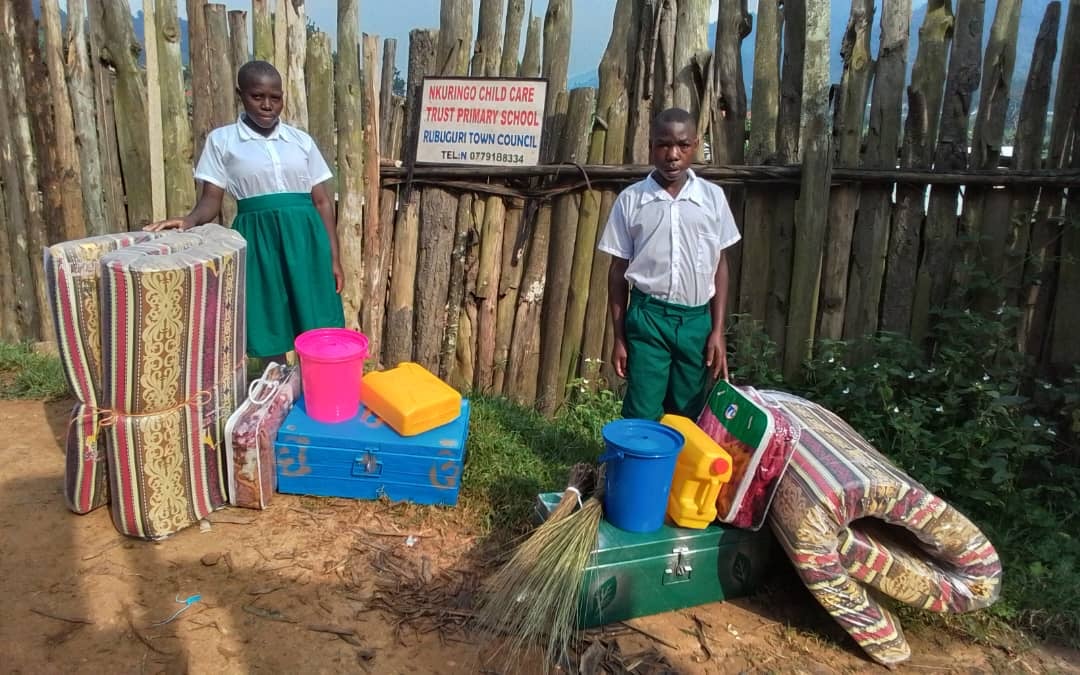
Two of the first 10 Batwa students sponsored through BIDO’s education program, which aims to support more children as resources grow.
At its heart, BIDO’s mission is about self-determination. It is about restoring what was stolen, on Batwa terms. “Justice means being represented in decisions about our land. It means not being erased. It means being treated as equals,” Ahimbisibwe explains.
“We Are Still Here”: Toward a Shared Future
Despite decades of displacement, discrimination, and erasure, the Batwa remain. Their children are learning Batwa songs. Their gardens are growing. Their shrines are remembered.
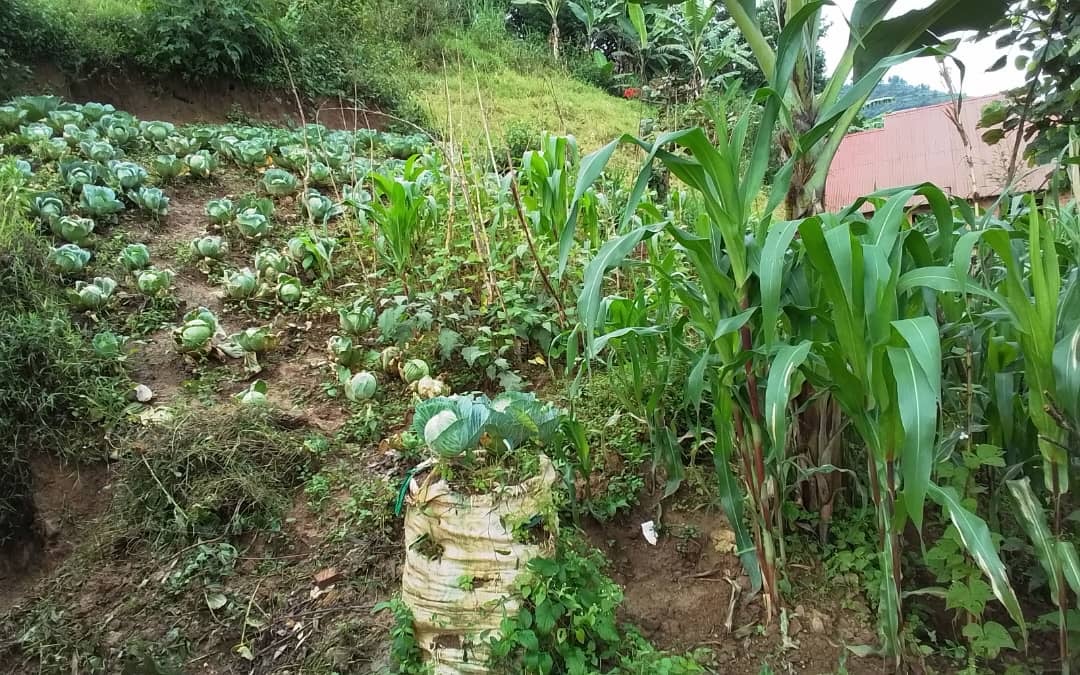
A Batwa community garden with mixed crops, promoting food diversity and resilience.
“If BIDO achieves its mission, the Batwa People will no longer be defined by suffering. We will be known for resilience, self-reliance, and cultural pride,” Ahimbisibwe says, adding, “We will farm our own land, pray in our sacred places, and educate our children in our own way.”
To other Indigenous communities, Ahimbisibwe offers solidarity. To allies, he offers honesty. “Don’t bring us solutions,” he says. “Bring us your ears. Let us define what justice looks like.”
And to the world, Ahimbisibwe offers this final truth: “We are not asking to be saved. We are asking to be seen.”
Top Image: Alex Ahimbisibwe, founder of BIDO, in Kigali at the 9th East Africa Philanthropy Conference
